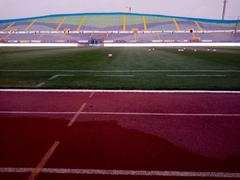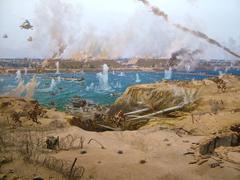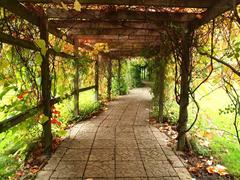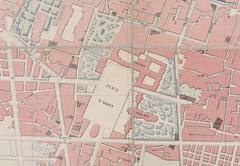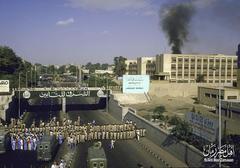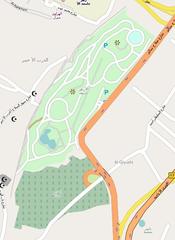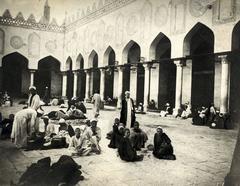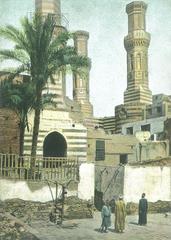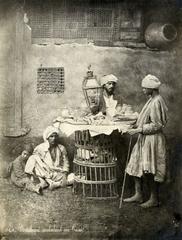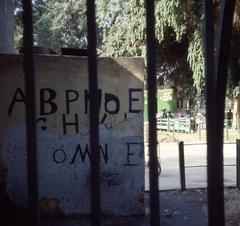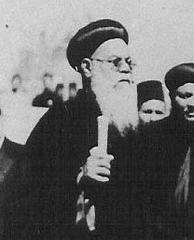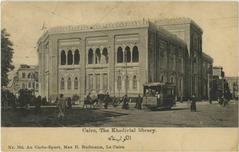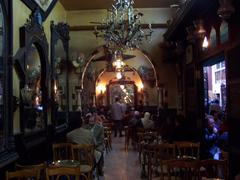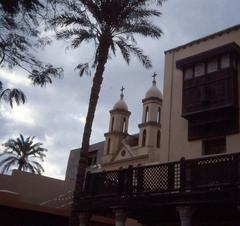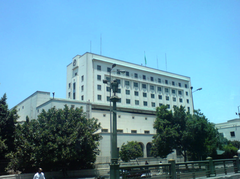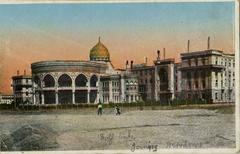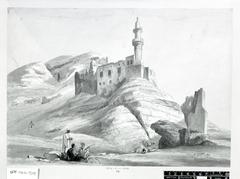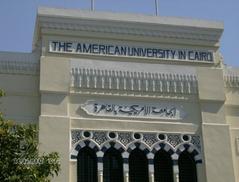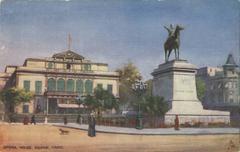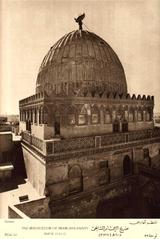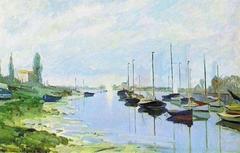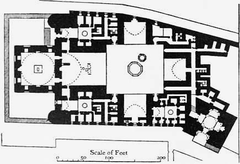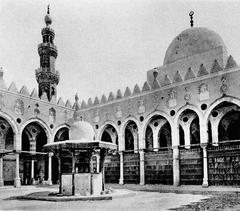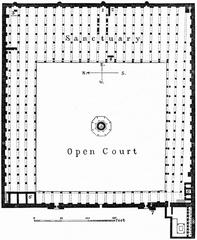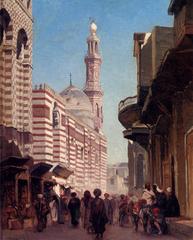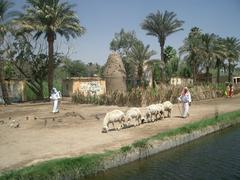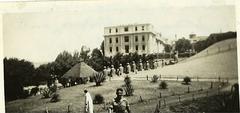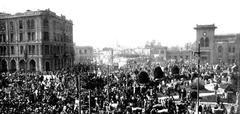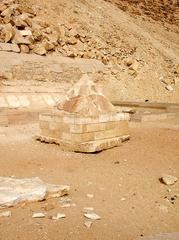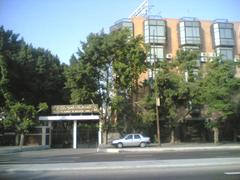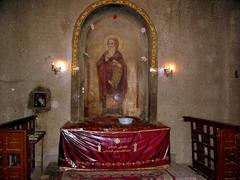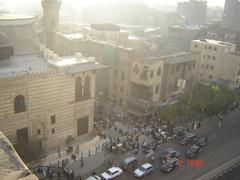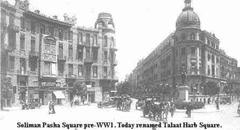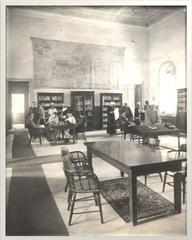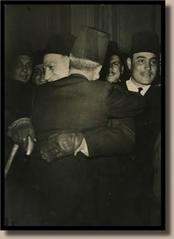Visiting Sultan Baybars Mosque in Al Nozha: Hours, Tickets, and Tips
Date: 18/07/2024
Introduction
The Sultan Baybars Mosque, also known as جامع السلطان بيبر, is a significant historical and architectural landmark located in Al Nozha, Cairo, Egypt. Commissioned by Sultan Al-Malik al-Zahir Rukn al-Din Baybars al-Bunduqdari, this mosque is a testament to the rich history and cultural heritage of Cairo. Sultan Baybars, who ruled Egypt from 1260 to 1277, initiated the construction of this mosque in 1266, and it was completed in 1269. This makes it one of the earliest and finest examples of Mamluk architecture in Egypt (Islamic Art).
The mosque’s architectural design includes a large rectangular courtyard surrounded by arcades, a central dome, and a minaret. The use of stone and brick, along with intricate geometric patterns and calligraphy, exemplifies the Mamluk architectural aesthetic (ArchNet). Throughout its history, the mosque has witnessed several significant events and has undergone numerous renovations to preserve its splendor. The most recent restoration project was undertaken in the early 21st century, funded by the Egyptian government and international organizations (UNESCO).
This comprehensive guide will cover everything you need to know about visiting the Sultan Baybars Mosque, including its history, architectural significance, visitor information, and nearby attractions. Whether you are a history enthusiast, an architecture lover, or a traveler seeking cultural experiences, this guide will help you make the most of your visit to this historic landmark.
Table of Contents
- Introduction
- History of Sultan Baybars Mosque
- Visitor Information
- Travel Tips and Nearby Attractions
- Cultural and Religious Importance
- Preservation Efforts
- Educational Programs
- FAQ
- Conclusion
History of Sultan Baybars Mosque
Foundation and Construction
The mosque was commissioned by Sultan Baybars, who ruled Egypt from 1260 to 1277. The construction began in 1266 and was completed in 1269, making it one of the earliest examples of Mamluk architecture in Egypt (Islamic Art).
Architectural Significance
The Sultan Baybars Mosque is renowned for its unique architectural features that reflect the Mamluk style. The mosque’s design includes a large rectangular courtyard surrounded by arcades, a central dome, and a minaret. The use of stone and brick in the construction, along with intricate geometric patterns and calligraphy, exemplifies the Mamluk architectural aesthetic (ArchNet).
Historical Events and Renovations
Throughout its history, the Sultan Baybars Mosque has witnessed several significant events and undergone numerous renovations. During the Ottoman period, the mosque fell into disrepair and was partially abandoned. In the 19th century, under the rule of Muhammad Ali Pasha, efforts were made to restore the mosque. The most recent restoration project was undertaken in the early 21st century, funded by the Egyptian government and international organizations (UNESCO).
Visitor Information
Ticket Prices
Entrance to the Sultan Baybars Mosque is free for all visitors. Donations are encouraged to help with ongoing preservation efforts.
Opening Hours
The mosque is open daily from 9 AM to 5 PM. It is advisable to check for any changes in visiting hours during religious holidays or special events.
Dress Code and Guidelines
Visitors are advised to dress modestly. Women should cover their heads with a scarf, and both men and women should wear clothing that covers their shoulders and knees. Shoes must be removed before entering the prayer hall.
Travel Tips and Nearby Attractions
How to Get There
The Sultan Baybars Mosque is located in Al Nozha, Cairo. It is easily accessible by taxi or public transportation. The nearest metro station is Al Shohadaa, from where you can take a short taxi ride to the mosque.
Nearby Historical Sites
While visiting the Sultan Baybars Mosque, you can also explore other historical sites in Cairo, such as the Citadel of Saladin, Al-Azhar Mosque, and the Egyptian Museum.
Cultural and Religious Importance
The Sultan Baybars Mosque holds immense cultural and religious significance for the local community and the broader Islamic world. It serves as a place of worship, a center for religious education, and a symbol of the Mamluk era’s architectural and cultural achievements (Islamic History).
Preservation Efforts
Preserving the Sultan Baybars Mosque has been a priority for both the Egyptian government and international heritage organizations. Various initiatives have been launched to ensure its conservation, including structural repairs and restoration of decorative elements (UNESCO).
Educational Programs
The mosque hosts classes and workshops on various subjects, including Quranic studies, Arabic calligraphy, and Islamic art. These programs are designed to engage both the local community and visitors, fostering a deeper understanding of Islamic culture and heritage (Islamic Education).
FAQ
What are the visiting hours for Sultan Baybars Mosque?
The mosque is open daily from 9 AM to 5 PM.
Are there guided tours available at Sultan Baybars Mosque?
Yes, guided tours are available and provide insights into the mosque’s historical and cultural significance.
Do I need to buy a ticket to visit the Sultan Baybars Mosque?
No, entrance to the mosque is free, but donations are encouraged.
Conclusion
The Sultan Baybars Mosque is a remarkable site that offers a glimpse into Cairo’s rich history and architectural prowess. Whether you are a history enthusiast, an architecture lover, or a traveler seeking cultural experiences, the Sultan Baybars Mosque is a must-visit destination. Plan your visit today and immerse yourself in the beauty and heritage of this historic landmark.
